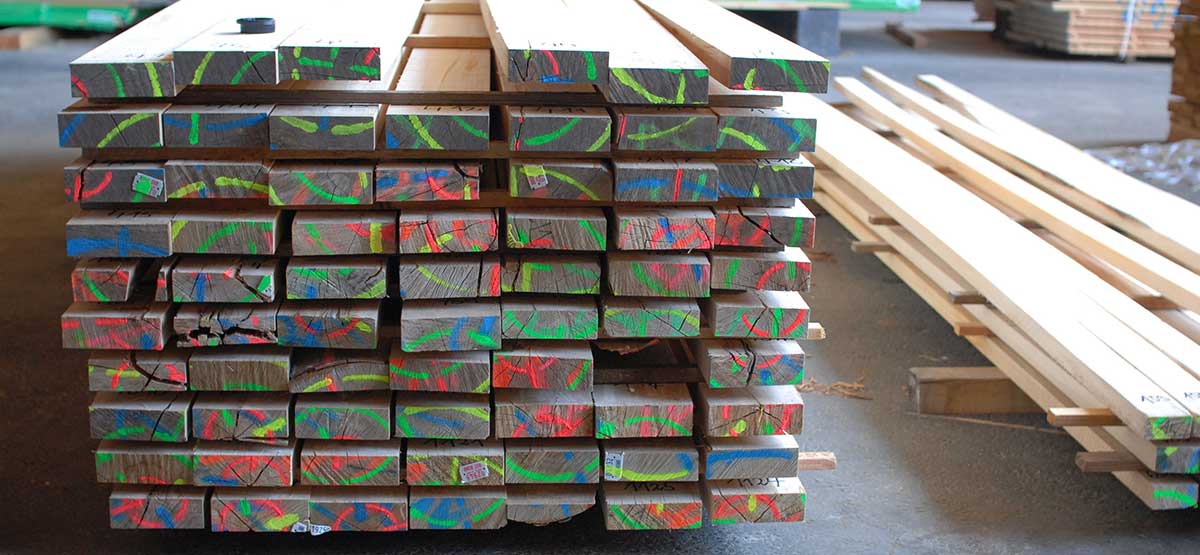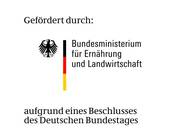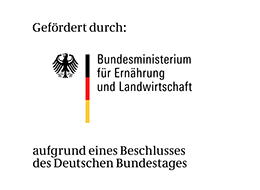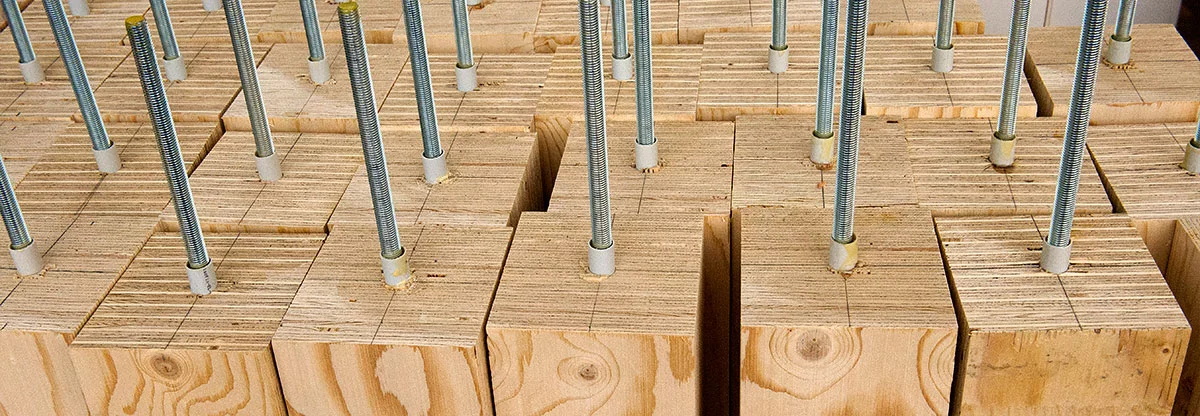Easy Beech – Development of economic beech components with focus on medium-sized and local companies

The increasing beech stock (Fagus sylvatica L.) in German forests can be employed for the growing market of timber construction. A truss system offers a technically reasonable solution for the application of beech glulam, which can be manufactured by medium-sized and local companies. The members in a truss system are only stressed in tension and compression. Problematic stresses, such as compression or tension perpendicular to the grain as well as shear, are avoided and the high compression strength of beech glulam can be utilized. The project Beech Connect already dealt with grading of the raw lamellas, the application of low-quality lamellas for glulam production, the material properties of the raw lamellas as well as of the glulam and the behaviour of slender beech glulam columns as well as connections. On the basis of those outcomes, an efficient combined visual and mechanical sorting algorithm for beech lamellas in glulam production is established. The load carrying capacities of specimens with a stochastical lamella setup are investigated and efficient 2D and 3D truss systems are identified. Intended working packages are:
|
|
| Duration | 01.10.2019 – 31.03.2022 |
| People | Zeilhofer, Monika; Westermayr, Maximilian; van de Kuilen, Jan-Willem; |
| Funding | Bayrische Landesanstalt für Wald- und Forstwirtschaft |

|
Impact of tree species on timber quality of European beech (Fagus sylvatica L.) and optimization of log grading

| The project between the Chair of Forest Growth and Yield Science and the Professorship of Wood Technology (Holzforschung München) aims at the analysis of the fundamental impact of mixture on elementary wood properties of European beech (Fagus sylvatica L.). In addition, a more efficient grading of round and sawn wood should be made possible in a market-oriented approach, maybe already on standing trees. The insights can be used to get the raw material to the optimal application early in the production chain. | |
| In a first project step, morphological stem and crown parameters of trees from pure and mixed stand are collected. These variables are expected to provide information on inner wood properties such as strength, stiffness or wood density. The external properties have to be measured on all trees of the stands in order to catch an expected high variability and thus be able to upscale from tree to stand level. The relationships of internal and external quality features shall also help give information about wood quality based on classical forest growth data. In a final step, the collected data are used to model quantity and quality of beech timber dependent on the forest management. | |
| Duration | 01.04.2017 - 31.03.2020 |
| Management | Dr. Andreas Rais |

|
|
| Logo des Projekts: Schnitt- und Rundholzqualität der Rotbuche in Abhängigkeit der Mischung mit anderen Baumarten. | |
| Project Partners |

|
| Sägewerk Försch | |
| Funding | Fachagentur Nachwachsende Rohstoffe e. V. (FNR) |
 
|
|
Optimizing the strength grading of hard- and softwoods for application in laminated high-end structural timber products
| Glued laminated timber (glulam) and cross laminated timber (CLT) allow the advanced utilization of the wood resources. The application of these products in high-rise buildings where, up to now, mainly concrete and steel are used could lead to lower greenhouse gas emissions due to a substitution effect. To make use of the advantages of Glulam and CLT, the natural variability of wood must be respected during the production by grading of lamellas in strength classes that define material properties. | |
| The objective of the current study is to optimize the production of lamellas. At the same time the project aims to increase the efficiency of timber processed in small and medium enterprises (SME), which are known for the application of visual strength grading practices and procurement of regional wood resources. The project pursues the following operational objectives: 1) revise visual strength grading standards incorporating new tensile strength classes for lamellas that are required for the glulam and CLT production; 2) analyse options that allow for adjusting the grading practices for regional available wood qualities; 3) estimate the potential of an economic visual machine strength grading. | |
| Duration | November 2014 – June 2017 |
| People | Kovryga, Andriy; van de Kuilen, Jan-Willem; |
| Funding | Federal Ministry of Food and Agriculture |

|
Beech Connect – Optimizing hardwood structures by using modern connections

|
|
| The results of the German National Forest Inventories 2 and 3 show an increasing amount of the species beech (Fagus s.) in German forests. At the same time, the forest areas covered by the economically important softwood species spruce (Picea a.) are decreasing (Federal Ministry of Food and Agriculture, 2015). The growing proportion of hardwood requires approaches for efficient material applications instead of pure energetic use. But especially small diameter logs and round wood with poor qualities often show low added value as well as missing possibilities for non-energetic applications. A quantitatively interesting but poorly developed market for hardwood is timber construction. In the research project Beech Connect, a 3D truss system is developed. The aim is a structure with high load carrying capacity made of beech glulam truss members, which allows the use of a high proportion of low quality beech timber. Work packages are amongst others: | |
|
|
| Duration | 01.10.2016 – 30.09.2018 |
| People | Westermayr, Maximilian; Khaloian Sarnaghi, Ani; van de Kuilen, Jan-Willem; |
| Funding | Bayerische Landesanstalt für Wald- und Forstwirtschaft |

|
